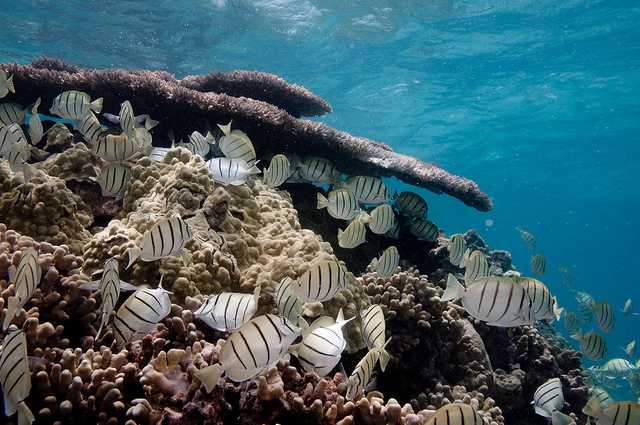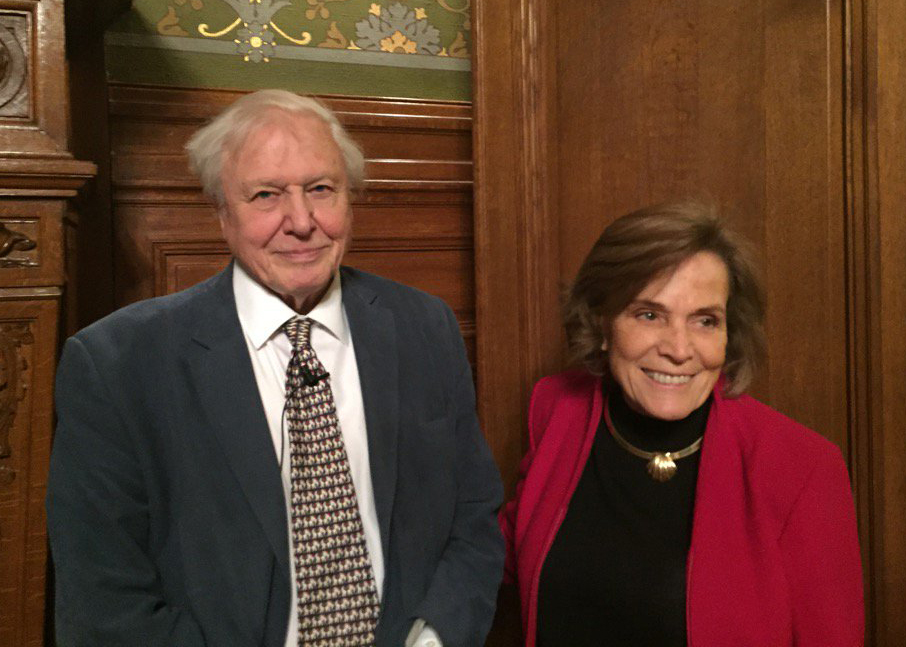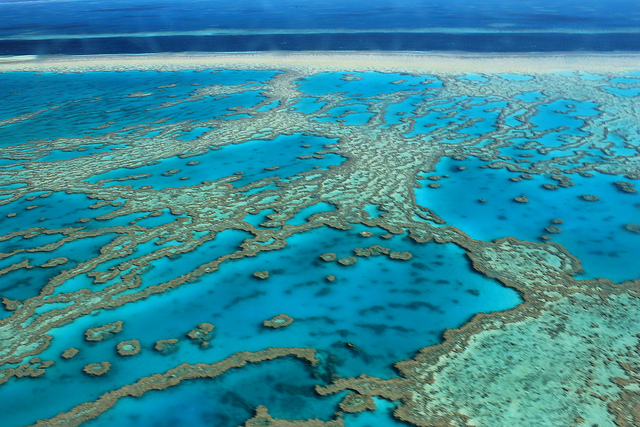The oceans cover
two thirds of the Earth’s surface, and in the words of renowned oceanographer
Dr Sylvia Earle, were once thought to be “too big to fail”.
But
90% of the excess heat from greenhouse gas emissions has been absorbed by the
oceans, and this heat is now finding its way to the deepest layers. Absorption
of CO2 from the atmosphere is causing the oxygen content of seawater
to decline, and the level of acidity to increase. Increasing acidity is
affecting the reproduction, growth and activity levels of many marine species,
including corals.

Warming
waters are also affecting the distributions of species, with many plants and
animals from tropical areas now turning up in more temperate regions, while
declining within their original range. This includes many fish species
important for human nutrition and livelihoods. Marine diseases and introduced
species are also becoming more evident in many parts of the ocean.
Coral
reefs are especially at risk. Increasing acidity is already affecting the
ability of many coral species to make their skeletons. Add on rising sea
levels, increased intensity of tropical cyclones, and underwater heat waves in
summer months and it’s not to imagine what sort of stress our reefs are under! More
detail on the impact of climate change on our oceans can be found here: IPCC
summary at http://ipcc-wg2.gov/publications/ocean.
The
impending oceans crisis has been recognised as a key issue at the Paris Climate
Summit. Day 5 of the summit was a specially designated Oceans Day, with a host
of events highlighting the risks our oceans face.
The threats for
coral reefs were highlighted by a special screening of the first instalment of
a new David Attenborough documentary on the Great Barrier Reef at the La
Maisons Des Oceans during the Paris meeting. Prior to the screening, a panel
discussion between Sir David, Dr Earle, Sir Richard Branson and Marco
Lambertini, Director General of WWF International, was facilitated by the
University of Queensland’s Prof. Ove Hoegh-Guldberg.

Sir David recounted his first visit to the
Reef in 1957 when he experienced his first scuba dive. Home to over 1500 fish
species, and one of the richest storehouses of biodiversity on the planet, the
Reef set in train his lifelong fascination with nature – something the world
has benefited from many times since.
The documentary showcased technology of
the 21st century – a mini Triton submersible submarine, allowing the
filmmakers to go deeper on the Reef than had been previously possible,
revealing the extraordinary beauty and diversity of this icon. The second part of the series will showcase
the dependence on the reef by some of the oceans most majestic creatures – the
rays, sharks and whales while the final episode will explore the many risks,
including climate change, that are already transforming this ecosystem.
As
we look ahead to the conclusion of the summit and to the international
agreement being negotiated, there is perhaps no greater symbol of what is truly
at risk if the world’s nations do not increase their ambitions for emissions
reduction. The Paris agreement will likely nominate a 2oC limit for
global ambition – but the pledges on the table thus far will, even if fully
implemented, deliver 2.7-3oC.
And
this is just not enough – as Ove
Hoegh-Guldberg said bluntly: “The Great Barrier Reef’s upper limit of
temperature for survival is 1.5oC”.

Australia has so much to lose yet continues to be a
global laggard in addressing the problem. The Climate Change Performance Index
is a comparison of climate protection performance of 58 countries that
are, together, responsible for more than 90% of global energy-related CO2 emissions.
The latest assessment, released during the summit, ranks Australia
as 3rd last of 58 countries
assessed, with only Kazakhstan and Saudi Arabia rate below.
Surely we can do better!
Image credits:
1. Coral reef, Shark Island, French Frigate Shoals from Flickr user usfwspacific CC BY 2.0
2. Image from Keith Tuffley (https://twitter.com/KeithTuffley/status/6731996298…)
3. Great Barrier Reef, from Flick user farbenfrohewunderwelt CC BY-ND 2.0